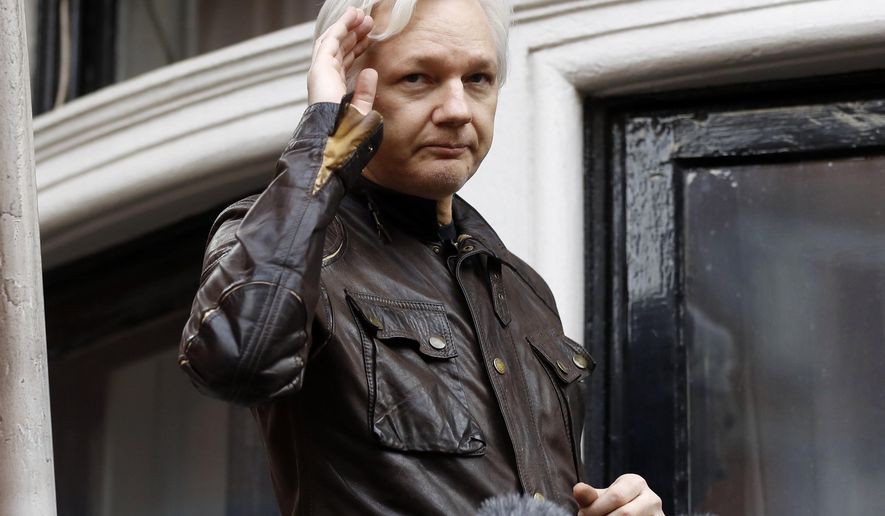President Trump’s administration would set a dangerous precedent for publishers by prosecuting WikiLeaks founder Julian Assange, The New York Times’ top attorney told a room full of federal judges Tuesday.
David McGraw, the newspaper’s longtime deputy general counsel, cautioned against charging the WikiLeaks chief while speaking to federal and circuit judges at the annual Ninth Circuit Judicial Conference in Anaheim, California, Courthouse News Service reported.
“I think the prosecution of him would be a very, very bad precedent for publishers,” Mr. McCraw reportedly told attendees. “From that incident, from everything I know, he’s sort of in a classic publisher’s position and I think the law would have a very hard time drawing a distinction between The New York Times and WikiLeaks.”
“But if someone is in the business of publishing information, I think that whatever privilege happens to apply – whatever extension of the law that would apply – should be there. Because the question isn’t whether he’s a journalist. It’s that instance was he committing an act of journalism,” the attorney added.
Mr. McGraw made the remarks amid reports that Ecuador may soon eject Mr. Assange from its embassy in London, putting him at risk of being arrested by British officials and subsequently extradited to the U.S. to face possible espionage charges and other counts related to releasing classified materials through WikiLeaks, the antisecrecy website he launched in 2006.
A 46-year-old Australian native, Mr. Assange entered the Ecuadorian Embassy in 2012 in lieu of answering to rape allegations being considered at the time by Swedish federal prosecutors.
The Department of Justice has not publicly announced any criminal charges against Mr. Assange. Attorney General Jeff Sessions called his arrest a “priority,” however, and authorities could potentially unseal an indictment and extradition request if and when he’s taken into British custody
WikiLeaks first came under fire in 2010 after the website began publishing classified State and Defense Department material provided by Chelsea Manning, an Army intelligence analyst subsequently convicted of espionage and other counts, and the role of WikiLeaks as a legitimate news source was hotly disputed during her 2013 court-martial.
• Andrew Blake can be reached at ablake@washingtontimes.com.




Please read our comment policy before commenting.